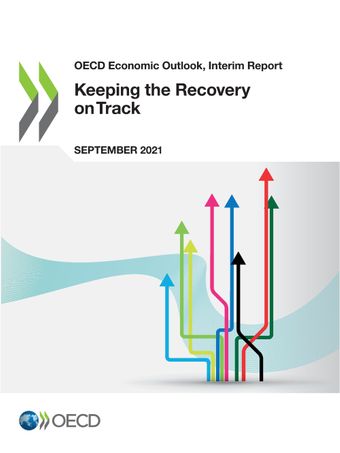OECD Interim Report
Why in News
Recently, Organisation for Economic Co-operation and Development (OECD) has released the interim report titled-Towards Eliminating Plastic Pollution by 2040: A Policy Scenario Analysis, ahead of the Intergovernmental Negotiating Committee on Plastic Pollution (INC3).
Important Points
Key Highlights of the Report on Global Plastic Pollution (2022-2040)
Plastic Leakage Statistics (2022):
- 21 million tonnes (MT) of plastics leaked globally into the environment.
Business-as-Usual Scenario (2040):
- Predicts a 50% increase in macroplastic leakage by 2040.
- Anticipates 30 MT of plastic leakage, with 9 MT entering aquatic environments.
Stabilizing Plastic Use (2040):
- Stabilizing primary plastic use at 2020 levels still results in significant leakage (12 MT) by 2040.
Ambitious Global Action (2040):
- Ambitious action could drastically reduce waste generation, almost eliminating mismanaged waste and nearly eliminating plastic leakage.
- Potential to cut plastic waste generation in 2040 by a quarter below baseline.
- Virtually eliminate mismanaged waste by 2040, reducing leakage to 1.2 MT.
- Stocks of plastics in rivers and oceans still expected to rise but 74 MT less than the baseline.
Environmental and Health Impacts:
- Escalating plastic use and disposal adversely affect the environment (habitat destruction, soil contamination), climate (contributing to 3.8% of total global greenhouse gas emissions), and human health.
Global Policy Actions (2040):
- Early, stringent, and coordinated policy action could have a significant positive impact.
- Costs of ambitious actions amount to 0.5% of global GDP in 2040.
Investment Needs (2020-2040):
- Fast-growing countries with less advanced waste management systems require over USD 1 trillion for waste collection, sorting, and treatment.
- Emphasizes the importance of international cooperation due to the uneven distribution of costs.
Recommendations to Address Plastic Pollution
Comprehensive Policy Approach:
- Develop and implement various policy scenarios that comprehensively address plastic pollution throughout its lifecycle.
- Emphasize the importance of holistic policies to effectively tackle plastic pollution at different stages.
Overcoming Technical and Economic Barriers:
- Prioritize efforts to overcome technical and economic barriers hindering the elimination of plastic leakage by 2040.
- Invest in research and development to find innovative solutions that address the challenges associated with plastic waste management.
Recycling Breakthroughs:
- Focus on fostering breakthroughs in recycling technologies to enhance the efficiency and viability of plastic recycling processes.
- Encourage the development of sustainable and cost-effective recycling methods to reduce reliance on single-use plastics.
Scaling Up International Markets:
- Facilitate the scaling up of well-functioning international markets for scrap and secondary plastics.
- Promote collaboration between countries to establish efficient mechanisms for the global trade of recycled plastics, encouraging a circular economy.
International Cooperation:
- Foster international collaboration to share knowledge, resources, and best practices in combating plastic pollution.
- Establish a global framework for coordinated action, acknowledging the shared responsibility in addressing the transboundary nature of plastic waste.
Public Awareness and Education:
- Implement public awareness campaigns and educational programs to promote responsible plastic use and disposal.
- Encourage behavioral changes to reduce plastic consumption and increase public understanding of the environmental impact of plastic pollution.
Incentives for Sustainable Practices:
- Introduce economic incentives for businesses and industries adopting sustainable practices, such as reducing plastic use and implementing eco-friendly packaging.
- Encourage the private sector to invest in and adopt environmentally responsible alternatives to traditional plastic products.
Legislation and Regulation:
- Enact and enforce robust legislation and regulations targeting the production, use, and disposal of plastics.
- Implement measures to hold industries accountable for their plastic footprint and encourage the adoption of eco-friendly alternatives.
Monitoring and Reporting:
- Establish a comprehensive monitoring and reporting system to track progress in plastic waste reduction efforts.
- Regularly assess the effectiveness of implemented policies and adjust strategies based on real-time data and evolving challenges.




.jpg)
.jpg)
.jpg)
.jpg)
.jpg)

.jpg)

.jpg)
